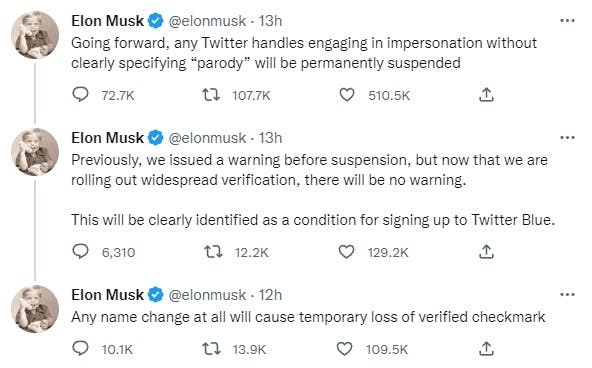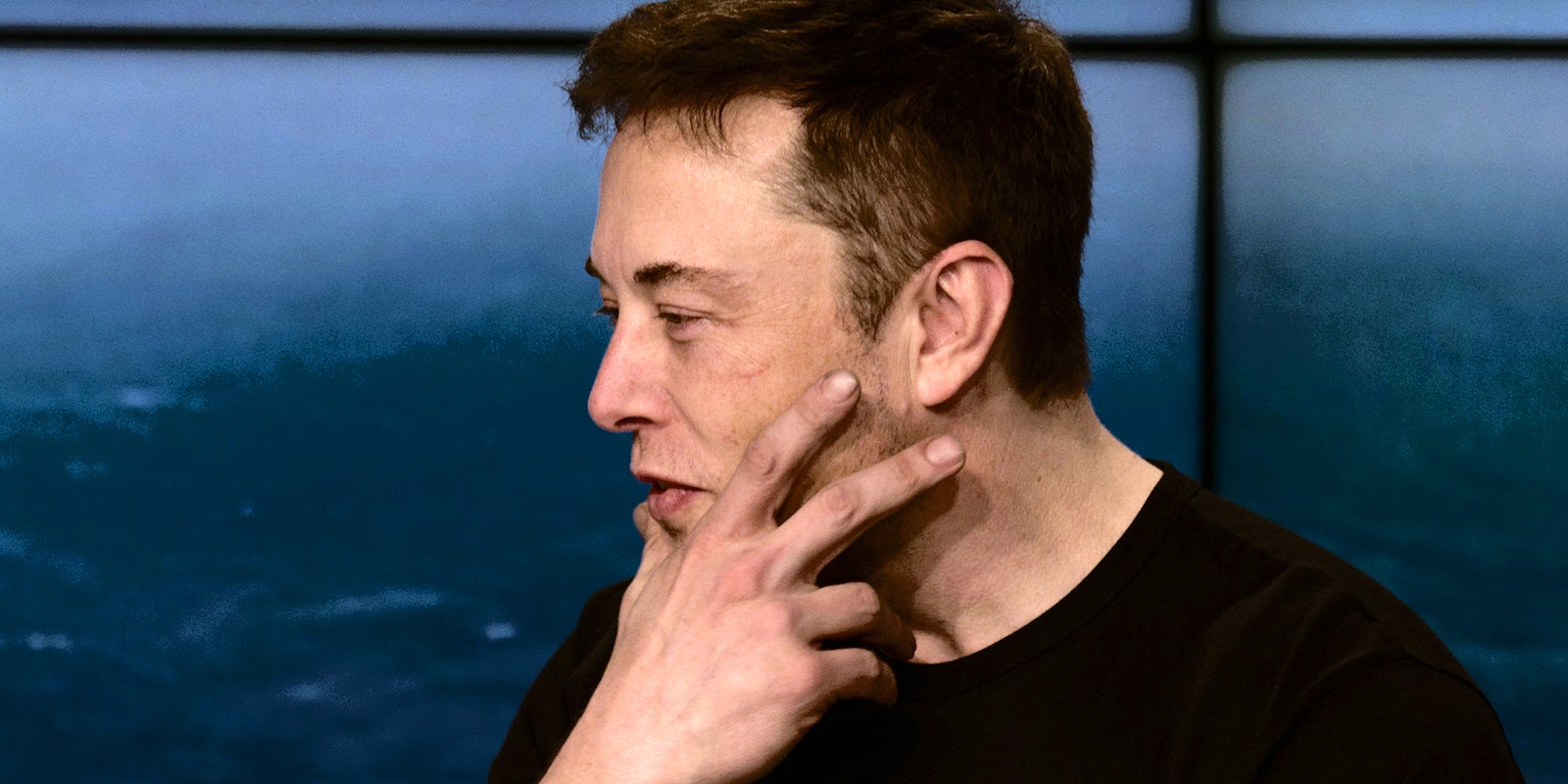After proudly declaring that “comedy is now legal on Twitter,” Elon Musk is taking a harsh stance on parody accounts. Specifically, he’s displaying some pretty thin-skinned behavior about people parodying himself, with Twitter suspending several verified users who changed their display names to “Elon Musk.”
So far, Musk’s tenure at Twitter can best be described as chaotic. Along with mass layoffs and a prevailing sense of digital doomsday prepping among the site’s users, Musk’s most attention-grabbing new policy is already causing problems. His planned overhaul for the blue checkmark system has been delayed to curtail misinformation during the midterm elections, as users demonstrate how unverified checkmarks could be used for impersonation.
Blue checkmarks currently signal that an account’s identity has been verified. Under Musk’s new system, that will no longer be the case. Instead, checkmarks will be a badge for Twitter Blue subscribers, an $8-per-month service offering perks like priority ranking for subscribers’ tweets. Musk claims this will “democratize journalism & empower the voice of the people,” but the concern is that misinformation will spread through paid accounts while many journalists and experts will lose visibility.
Crucially, Twitter Blue subscribers will not have to verify their identities—which is where the Elon Musk parody accounts come in.
As soon as the new Twitter Blue service was announced, people began to speculate that blue checkmarks would be used for impersonation. Several already-verified users highlighted the problem by changing their screennames—most notably someone who changed their name to Keanu Reeves, and several who poked fun at Elon Musk, including comedian Kathy Griffin, cartoonist Jeph Jacques, YouTuber Ethan Klein, and former football player Chris Kluwe.
All of the viral fake Musks were suspended by Sunday night, even though some of them publicly listed themselves as parody accounts—thus abiding by Musk’s own rules. Twitter does have a history of suspending verified users who use their checkmark for parody impersonations (ie. the infamous Jaboukie), but the demise of the fake Musks felt particularly pointed. It gives the impression that Musk can’t take a joke, using his power as CEO to crack down on people making fun of him. Not to mention proving the point that verified checkmarks serve a practical purpose.
In a thread posted Sunday night, Musk sparked further criticism by announcing harsh measures against impersonation—including suspending any Twitter Blue account that changes its name. This would prevent users from altering their screennames for self-promotion or political reasons—a harmless and widespread practice on the platform.

As with all major events on Twitter, this mess was already predicted by @dril:
The new Twitter Blue is expected to launch after the midterms on Tuesday, although considering the recent upheaval behind the scenes at Twitter, that could change. At any rate, the public reaction to Musk’s new checkmark system is far from positive.
Along with concerns about troll farms purchasing Twitter Blue accounts to spread misinformation, it’s unclear whether many regular users will even want a checkmark if it no longer signals verification. Some are already suggesting blocking any account with a checkmark, in the same way that Tumblr users join forces to bully celebrities and brands off the site. So instead of solving any real problems with the platform, Musk’s new checkmark policy is creating new problems that will be much harder to solve down the line.



